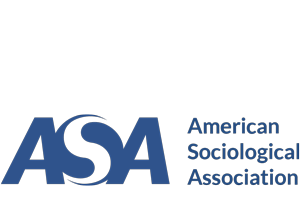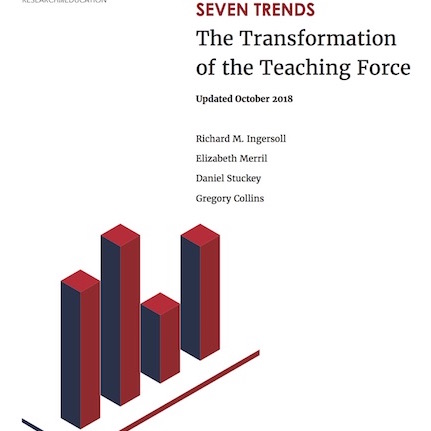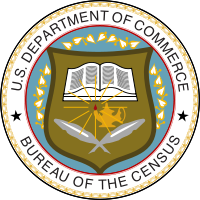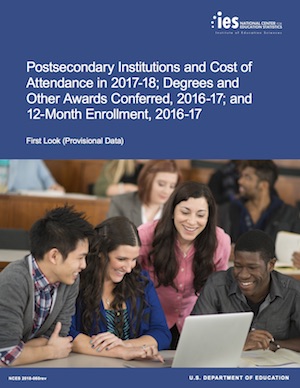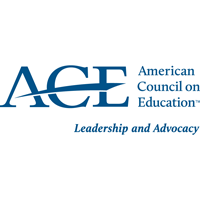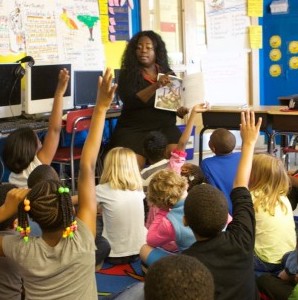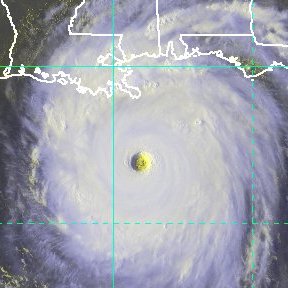Brookings Institution Report Shows How Racism Has Devalued Black Homes
The results of the Brookings study show that homes in Black neighborhoods are devalued by an average $48,000. This means that homes in Black neighborhoods are worth 23 percent less on average compared to similar homes in predominately White communities.
Report Finds Persisting Racial Shortfall in the Public School Workforce
In the 2015-2016 academic year, 19.9 percent of public elementary and secondary teachers were minorities, but 51 percent of all public school students were members of racial or ethnic minority groups.
College Athletic Powerhouses Earn a Grade of D in Achieving Racial Equity in Leadership...
At the 130 colleges and universities that make up the Football Bowl Subdivision of Division 1 of the National Collegiate Athletic Association, in the fall of 2018 African Americans made up 3.8 percent of the presidents and 9.2 percent of the athletics directors.
Racial Differences in Interactions Between Children and Parents in American Households
The data show that 75.6 percent of non-Hispanic White parents read to their young children at least five days a week. In African American households, only 54.5 percent of parents read to their young children at least five days a week.
Intimate Partner Violence Prevention Efforts Can Lower Rates of HIV Among Black Women
A new study led by Tiara Willie at the Yale School of Public Health has found that states that aggressively target intimate partner violence in their health care systems have lower rates of HIV infection among women.
The Gender Gap in Degree Attainments Among African Americans
There is a major gender gap in degree awards at all levels among African Americans. In the 2016-17 academic year, Black women earned 66.9 percent of all associate's degrees, 64.1 percent of all bachelor's degrees, 70.1 percent of all master's degrees, and 68.4 percent of all research doctorates awarded to African Americans.
What Went Wrong at the University of Missouri and How to Avoid Similar Campus...
A recent report from the American Council on Education has examined what led to the University of Missouri's 2015-2016 racial crisis and how the institution responded to what happened in the ensuing period.
Do White Liberals “Talk Down” In Order to Connect With Black Audiences?
A study led by a researcher at the Yale School of Management has found that White Americans who hold liberal political views tend to use language that makes them appear less competent in an effort to connect with racial minorities.
New Data on African American Degree Attainments in the United States
During the 2016-17 academic year, African Americans earned more than 349,000 degree awards at four-year U.S. postsecondary educational institutions. Blacks earned 9.6 percent of all bachelor's degrees, 10.2 percent of all master's degrees, and 8 percent of all research doctorates.
The FBI Releases New Data on Hate Crimes in the United States
In 2017, there 7,175 hate crime incidents reported to the Federal Bureau of Investigation by by local law enforcement agencies. There were 214 hate crimes on college campuses in 2017 that were reported to the FBI. Of these 129 were related to race or ethnicity.
How Teachers Can Impact The Pathway to College for Young Black Students
The researchers found that Black students who had just one Black teacher by third grade were 13 percent more likely to enroll in college, and those who had two Black teachers were 32 percent more likely to go to college.
A Snapshot of African American Enrollments in Higher Education in the Fall of 2017
There were 20,135,159 students enrolled at Title IV institutions in the fall of 2017. Of these, there were 2,489,088 African Americans in this group. They made up 12.4 percent of the total enrollments. Blacks were 11.4 percent of the total enrollments in graduate programs.
University Study Finds Diet Is the Major Reason for High Blood Pressure Among African...
A recent study led by scholars at the University of Alabama at Birmingham has found that diet is the predominant factor explaining why African-Americans are more likely to develop higher blood pressure than their White counterparts.
Black Job Seekers May Be More Likely to Receive Lower Salaries as a...
A recent study led by a scholar at the Graduate School of Business at the University of Virginia has found that African-American job candidates are more likely to receive lower starting salaries when evaluators believe they have been too aggressive in hiring negotiations.
University Study Finds Children as Young as Seven Suffer from the Impacts of Discrimination
Scholars at the University of California, Riverside have found that children as young as seven are sensitive to and suffer from the impacts of discrimination. The study also suggests that a strong sense of ethnic-racial identity is a significant buffer against these negative effects.
Less-Educated Black Women May Face Greater Risk of Chronic Diseases Due to Discrimination
A new study from the University of California, Berkeley has found that less-educated African-American women who report experiencing high levels of racial discrimination may face greater risk of developing chronic diseases.
Most Americans Underestimate the Environmental Concerns of Blacks and Other Ethnic Groups
A new study by researchers at several leading colleges and universities has found that most Americans underestimate just how concerned African Americans and lower-income people are about environmental threats.
Why Black Girls Experience Harsher School Punishments Than Their White Peers
Participants in a Georgetown University survey viewed Black girls as more adult than White girls. In particular, they viewed Black girls as needing less protection and nurturing and more knowledgable about adult and sexual topics than their White peers.
Fordham University Study Analyzes Barriers Students of Color Experience in STEM Education
The research team has conducted one-on-one interviews with students who have had both positive and negative experiences with STEM. So far, the researchers have found that teachers' behaviors towards their students greatly affects their performance.
Cornell University Research Shows Racial Bias Occurs on Dating Apps
According to the researchers, Black men and women are 10 times more likely to message White people than White people are to message Black people. Additionally, they also found that men who used these dating apps heavily viewed multiculturalism less favorably, and sexual racism as more acceptable.
Examining the Data on Black Enrollments in U.S. Graduate Schools
In 2017, there were 188,838 Black students enrolled in graduate schools in the United States. They made up 12.6 percent of all enrollments. There were 56,765 Black men and 130,006 Black women enrolled in graduate school.
A New Study Finds Black Medical Students Face Bias During Residencies
A survey of medical residents from underrepresented racial and ethnic groups found that these medical professionals experienced bias and microaggressions daily. They were also asked routinely to serve as "ambassadors" to resolve diversity issues.
Dartmouth College Study Finds Racial Disparities in Student Debt Can Persist Later in Life
This study is the first to examine how racial disparities in student loan debt change over a person's life rather than only analyzing them at a single point in time when they leave college. Disparities in student debt may contribute to the severe racial economic inequality later in life.
No Progress in Closing the Racial Scoring Gap on the ACT College Entrance Examination
Some 48 percent of Whites who took the ACT test were deemed college ready in three of the four areas of English, mathematics, reading, and science. For Blacks, only 11 percent of all test takers were deemed college ready in at least three of the four areas.
University Study Finds Efforts to Make Science Relevant to Diverse Students Create Divisions
These practices in the classroom attribute health problems to individual choices and divide students into those who are deemed ready for a general chemistry or anatomy lab from those who need to apply the laboratory work to correct problems in their personal lives.
A Boston College Professor Analyzes the President’s Budget Proposals for Minority Serving Institutions
The researchers found that even though President Trump promised support for minority serving institutions, every single program for these colleges and universities had a reduced budget, totaling close to $95 million in proposed cuts.
New Georgia State University Study Finds Significant Racial Pay Gaps in State Government
The study found that White men earn significantly more than Blacks, Latinos and Latinas, and White women in all areas of state government. Even when all variables such as age, experience, and education are taken into account, Black men continue to earn less than White men.
Report Analyzes the Status of Black Students at Public Colleges and Universities
The researchers report that 14.6 percent of 18-24 year-olds across the 50 states are Black, but only 9.8 percent of full-time, degree-seeking undergraduates at public colleges and universities are Black. Additionally, the report found that 44 percent of public campuses have 10 or fewer full-time Black faculty members
American University Report Finds Documentary Film Industry Making Strides in Diversity
The study, produced by the Center for Media & Social Impact at American University in Washington, D.C., found that almost 70 percent of new documentary professionals, those who have been in the industry less than 15 years, are members of racial and ethnic minority groups.
Neuroscientists Create a Computational Model to Predict Discrimination Based on Stereotypes
A team of researchers led by neuroscience scholars at the University of California, Berkeley has built a computational model that can predict the degree to which we discriminate against one another based on our stereotypes of groups according to their perceived warmth and competence.
African Americans With Strong Racial Identities Are Less Likely To Be Hired and Receive...
A Black job applicant who worked on the Obama presidential campaign would indicate a strong racial identity, whereas a Black applicant who was a member of a ski club would be perceived as not having a strong racial identity.
University Study Finds People’s Opinions Are Not Swayed by Police Racial Disparity Statistics
A new study by scholars at the University of Kansas and George Mason University in Fairfax, Virginia, has found that people do not change their opinions of the police after being presented with statistics of racial disparities in police stops.
The Racial Wealth Gap in Los Angeles Has Widened Since the 1965 Watts Riots
A new study by scholars at Duke University, the University of California Los Angeles, and the New School, has found that the wealth gap has been severely overlooked as a major factor in overall inequality since the 1965 Watts riots in Los Angeles.
Black Male Students Benefit Academically From Having Black Male Teachers
Some 77 percent of elementary and high school teachers are White women. As a result, some Black male students may never be taught by someone who looks like them. When young Blacks have an African American teacher in elementary school, they are more likely to attend college.
Research Finds That Racism Continues to Plague the Housing Market in the United States
Researchers at the University of New Mexico have conducted a study that found that racial stereotypes and discrimination continue to play a role in the process of finding and purchasing a home.
University Study Finds That Black Men Are More Likely to Be the Victims of...
Official police reports showed that police related deaths accounted for 4 percent of male homicides, while the researchers found this to actually be as high as 8 percent. During a six-year period, Black men were killed by police at the highest rate; 2.1 per 100,000 men.
